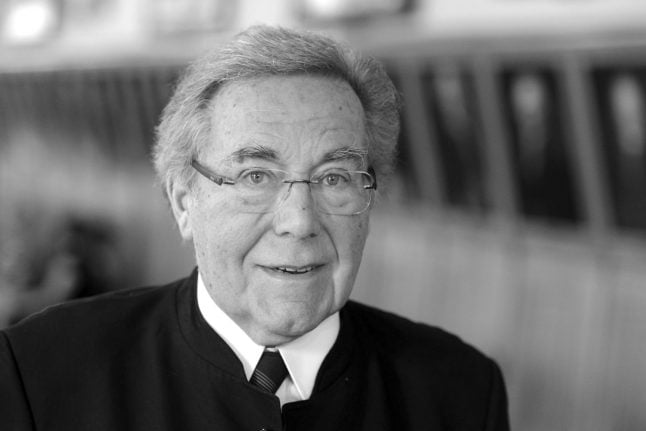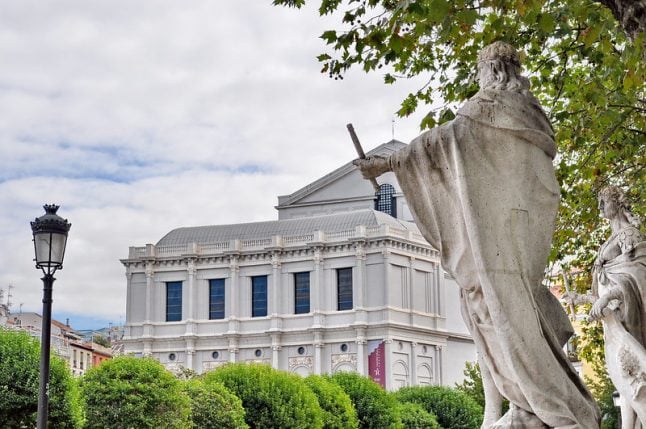Schreier, one of the few international stars to emerge from former communist East Germany, passed away in his beloved home city of Dresden.
Although Schreier retired from opera at the age of 65 in 2000 because he felt too old to be playing young lovers on stage, he continued to give “Lieder” or song recitals for a few more years and then focused on teaching and conducting until his health problems became too severe.
Schreier suffered from back and hip problems and had diabetes, according to German media.
In a career that spanned decades and encompassed more than 60 different roles, Schreier performed regularly in some of the world's most prestigious opera houses and festivals, from Berlin, Vienna and Salzburg to New York and Milan.
He was perhaps most famous for his interpretations of Bach and Mozart, but his repertoire also included Wagner and he even sang at the legendary Bayreuth Festival in 1966.
“A day without music is a wasted day,” DPA news agency quoted him as saying.

Schreier (middle) being honoured with a Bach medal in 2013. Photo: DPA
Born on July 29, 1935 in the small town of Gauernitz near Dresden in Saxony state, Schreier's singing talent soon became apparent to his father, a church cantor.
At the age of eight, Schreier joined Dresden's famous Kreuzchor boys' choir and went on to study singing and conducting in the city which was heavily destroyed by Allied bombing during World War II.
Mozart breakthrough
Schreier made his operatic debut in the role of First Prisoner in Beethoven's “Fidelio” at the Dresden State Opera.
But his breakthrough came a little later in two key Mozart roles — Belmonte in “The Abduction from the Seraglio” and Tamino in “The Magic Flute”.
While critics did not always describe his voice as beautiful, they praised the intensity and intelligence of his performances.
A pivotal member of the Berlin State Opera at Unter den Linden in then East Berlin, Schreier enjoyed rare privileges in the tightly-controlled GDR — without being a member of the ruling SED communist party.
In 1972, he took up the baton and went on to conduct some of the world's leading orchestras, including the New York Philharmonic and the Vienna Philharmonic.
But Schreier always insisted his heart belonged to Dresden.
“I would be missing something if I couldn't live in Dresden,” he used to
say.
He finally took his leave from the concert stage in 2005 at a performance of Bach's Christmas Oratorio in Prague, when he both conducted and also sang the role of the Evangelist.
That same year, he told German media he was looking forward to relaxing at his countryside villa on the outskirts of Dresden and cooking for his wife Renate.
“I've really sung enough and would just like to enjoy a few more peaceful years now,” he said.



 Please whitelist us to continue reading.
Please whitelist us to continue reading.
Member comments